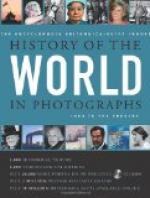Narrative Literature: (a) Epic and Romance.—The French epic came over to England at an early date. We know that the Chanson de Roland was sung at the battle of Hastings, and we possess Anglo-Norman MSS. of a few chansons de geste. The Pelerinage de Charlemagne (Koschwitz, Altfranzoesische Bibliothek, 1883) was, for instance, only preserved in an Anglo-Norman manuscript of the British Museum (now lost), although the author was certainly a Parisian. The oldest manuscript of the Chanson de Roland that we possess is also a manuscript written in England, and amongst the others of less importance we may mention La Chancun de Willame, the MS. of which has (June 1903) been published in facsimile at Chiswick (cf. Paul Meyer, Romania, xxxii. 597-618). Although the diffusion of epic poetry in England did not actually inspire any new chansons de geste, it developed the taste for this class of literature, and the epic style in which the tales of Horn, of Bovon de Hampton, of Guy of Warwick (still unpublished), of Waldef (still unpublished), and of Fulk Fitz Warine are treated, is certainly partly due to this circumstance. Although the last of these works has come down to us only in a prose version, it contains unmistakable signs of a previous poetic form, and what we possess is really only a rendering into prose similar to the transformations undergone by many of the chansons de geste (cf. L. Brandin, Introduction to Fulk Fitz Warine, London, 1904).
The interinfluence of French and English literature can be studied in the Breton romances and the romans d’aventure even better than in the epic poetry of the period. The Lay of Orpheus is known to us only through an English imitation; the Lai du cor was composed by Robert Biket, an Anglo-Norman poet of the 12th century (Wulff, Lund, 1888). The lais of Marie de France were written in England, and the greater number of the romances composing the matiere de Bretagne seem to have passed from England to France through the medium of Anglo-Norman. The legends of Merlin and Arthur, collected in the Historia Regum Britanniae by Geoffrey of Monmouth ([+] 1154), passed into French literature, bearing the character which the bishop of St. Asaph had stamped upon them. Chretien de Troye’s Perceval (c. 1175) is doubtless based on an Anglo-Norman poem. Robert de Boron (c. 1215) took the subject of his Merlin (published by G. Paris and J. Ulrich, 1886, 2 vols., Societe des Anciens Textes) from Geoffrey of Monmouth. Finally, the most celebrated love-legend of the middle ages, and one of the most beautiful inventions of world-literature, the story of Tristan and Iseult, tempted two authors, Beroul and Thomas, the first of whom is probably, and the second certainly, Anglo-Norman (see ARTHURIAN LEGEND; GRAIL, THE HOLY; TRISTAN).




